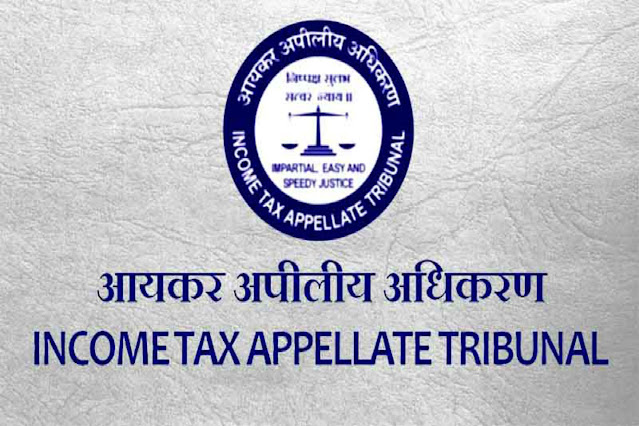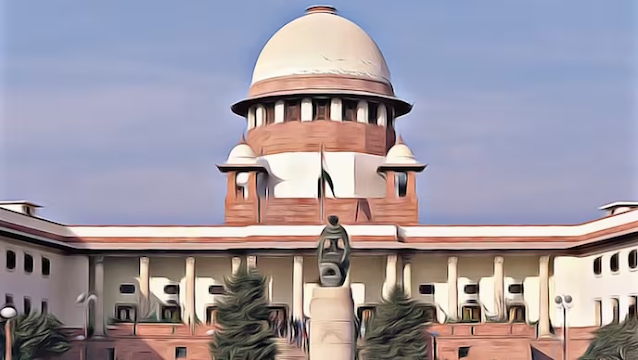D. Biswas, J.@mdashThis reference arises out of the order dated October 27, 1994, passed in I.T.A. Nos. 446, 447 448 and 449 (Gau) of 1992 passed by ? the Income Tax Tribunal, Guwahati Bench at Guwahati. The Tribunal, on application by the assessee u/s 256(1) of the Income Tax Act, 1961, referred the following questions before this court:
1. Whether, on the facts and in the circumstances of the case, the learned Income Tax Appellate Tribunal erred in holding that the report of the Departmental Valuer for determination of cost of construction was binding on the Assessing Officer irrespective of the fact that regular books of account for cost of construction were maintained by the assessee?
2. Whether the Tribunal was right in confirming the orders of the lower authorities even though no positive contrary evidences were brought in by the Assessing Officer for rejecting the books of account of the assessee maintained for the purpose of cost of construction?
3. Whether, the report of the Departmental Valuer would become final and binding on the Assessing Officer while the petition for objection to the basis of valuation of cost of construction was pending before the District Valuation Officer?
Facts of the case:
2. The assessee started construction of a cinema hall at Dhubri, Assam in the financial year 1984-85 and the construction was more or less completed in the financial year 1987-88. The assessee filed its return of income for the assessment year 1988-89 showing loss. The assessment was completed on a total income of Rs. 4,29,610. The assessment order was set aside on appeal and the matter was referred to the valuation cell of the Department for determining the cost of construction. On the basis of the executive engineer''s valuation report, proceedings u/s 147 were initiated and notices u/s 148 were issued for the assessment years 1985-86 to 1987-88. Returns were filed in response to the notices showing losses. The assessee submitted its objection against the valuation report claiming that regular books of account, profit and loss accounts and the balance-sheets were maintained for the relevant assessment years. The Assessment Officer not being satisfied with the explanation added the differential value in the respective assessment years under reference to the total income of the assessee u/s 69 of the Act. The assessee preferred an appeal before the Commissioner of Income Tax (Appeals) challenging the valuation report on the ground that the books of account were maintained properly and the same were not rejected by the Assessing Officer and, therefore, there was no scope for application of reproduction method for determination of the cost of construction. The assessee also pointed out that the costs of building materials as well as labour charges were much less in Dhubri than in other bigger cities. It was also pleaded that 10 per cent, margin should have been allowed for personal supervision. The Commissioner of Income Tax (Appeals) considered the submission of the assessee and held that the cost of construction as worked out by the Valuation Officer is reasonable considering the type of construction, materials used, value of the furniture and fixtures. The Commissioner of Income Tax (Appeals), however, directed the Assessing Officer to reduce the cost of construction by 10 per cent, for self-supervision. The assessee preferred an appeal before the learned Tribunal which passed the consolidated order on October 27, 1994, out of which the present reference has arisen.
3. The learned Tribunal in its order dated October 27, 1994, considered the matter in depth with reference to the materials on record. Agreeing with the decision of the Commissioner of Income Tax (Appeals), the Tribunal rejected the plea that the books of account maintained in regular course of business will get precedence over the Departmental Valuer''s report. The Tribunal further noticed that the copy of the valuation report was furnished to the assessee to enable him to file objections. The objections raised by the assessee were duly considered by the Assessment Officer as well as the Commissioner of Income Tax (Appeals). The Tribunal refused to interfere as it found that the cost of construction as assessed by the Valuation Officer is reasonable.
4. We have heard Mr. N. Choudhury, learned Counsel for the assessee, and Mr. U. Bhuyan, learned Counsel for the Revenue.
5. Mr. Choudhury, learned Counsel for the assessee, argued that the books of account are maintained properly in regular course of business and the same reflect the actual spending by the assessee. The cost of materials and labour charges in a sleepy town like Dhubri is on the lower side and, therefore, the report of the Valuation Officer based on fixed formulae cannot reflect the actual expenses incurred. It has been further argued that the assessment was completed on March 25, 1987, and it should not have been reopened and referred to the Valuation Officer. Referring to the provisions in Section 34 of the Indian Evidence Act, it has been argued that the books of account, not being deprecated, should not have been rejected.
6. Mr. Bhuyan, learned Counsel for the Revenue, submitted that the valuation report was called for before reopening of the assessment, and proceedings were initiated u/s 147 after perusal of the valuation report. The reopening, according to Shri Bhuyan, was within the powers of the Assessment Officer since he had a reason to believe from the valuation report that income chargeable to tax has escaped assessment. Mr. Bhuyan further argued that both the Commissioner of Income Tax (Appeals) as well as the Tribunal took note of the fact that the assessee was furnished with an opportunity of being heard before reassessment. According to Mr. Bhuyan, working out of cost of construction of a building requires in-depth scrutiny of various factors and the Departmental Valuer has in his report dealt with the matters in detail. No error or mistake could be pointed out by the assessee during the course of hearing. The valuation report has been accepted by the authorities below. The matter is purely a question of fact, and not of law.
7. The controversy in the instant reference relates to factual aspects of construction of a cinema house and valuation thereof. There is no doubt that the decision in this regard taken by the authority below is a decision on the facts. But, this decision must be in due exercise of the powers vested with the Assessing Officer. The function of a valuer of a property is a technical function requiring expert investigation for the purpose of estimating the cost of construction, see
8. In the instant case, the proceeding has been initiated u/s 147 after completion of the assessment and therefore notices were issued u/s 148. In response, the assessee submitted that the Assessment Officer could not reopen the assessment on the basis of the report of the Valuation Officer for initiation of proceedings u/s 147. The opinion of the Departmental Valuer cannot be treated as a reason conclusive to form the belief as contemplated in Section 147. The learned single judge of this Court held that a valuation report is only an opinion of the valuer and the same cannot form a ground for reason to believe for initiation of a proceeding u/s 147 of the Act.
9. Before issuing a notice u/s 148, the Assessing Officer is required to record his reason for doing so as provided in Sub-section (2) of Section 148. Further, no notice u/s 148 could be issued except in the manner as provided in Section 149.
10. The provisions in Sections 147 and 148 would show that the Income Tax Officer/Assessing Officer has to set out the reasons for coming to the conclusion that this is a fit case for issue of notice u/s 148 and there must be an order to this effect as provided in Sub-section (2) of Section 148. No such order has been placed on record for verification by this court. The report of the Valuation Officer is an opinion and it may create suspicion and doubt. Suspicion and doubt, in the opinion of this court, cannot be treated as opinion capable of forming reason to believe within the meaning of Section 147. Since there is nothing on record to show that the provision of Sub-section (2) of Section 148 has been complied with, the taxing authorities were not eligible to reopen the assessment u/s 147.
11. In the result, the reference is disposed of. The questions formulated are answered in the negative against the assessee and in favour of the Revenue. (sic).

